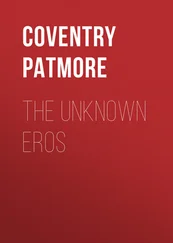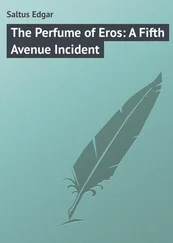‘About what?’
‘About my father.’ Bernadette made a petulant gesture of impatience. ‘About my father,’ Nan repeated.
‘I’ve nothing to add to what I told you. I know next to nothing about him.’
‘You know more than you told me.’
‘No.’
‘You even made it clear at the time. I want the answers before you go. Who was he?’
‘An American newsman.’ She looked from Nan to the standing clock and back again.
‘I must know. Did he try to get me out of Saigon after my mother died?’
Bernadette took up the one valise she had packed. ‘Everybody was trying to get someone out of Saigon.’
‘But did my father try to get me out?’
‘Why is this so important to you now, so many years later?’
‘I want to know,’ Nan Luc said. ‘If he was a good man I want to know.’
‘To play at loving him?’ Bernadette laughed bitterly. ‘To pretend to love someone you don’t even know?’
‘To honour him. If he was a good man, to honour him as a father.’ Nan Luc was holding her against the wall.
Bernadette dropped her valise. ‘Believe me. I know only that after the American war Quatch met him in Europe. From that time on he began to send sums of money to Quatch from America. That’s all I know,’ Bernadette said savagely. ‘Let me go.’
Nan Luc blocked the door. ‘The birth certificate. Where is it?’ For a moment Bernadette looked at her. ‘You’re chasing the west wind, Nan Luc. The birth certificate is upstairs in my secretaire. Go and get it and burn it and forget you ever had an American father. What will it ever matter to you what sort of man he was?’
‘One more thing,’ Nan Luc said. ‘The German, Peter Benning, why was he killed?’
‘He was interfering in Monsieur Quatch’s business arrangements, that’s all I know.’
‘What business arrangements?’
Bernadette stopped suddenly. ‘If Quatch lives, there’ll still be a trial. I’m saying this for your sake, Nan Luc. The less you know the safer you’ll be. You have a life here in this benighted Communist paradise. Make it easy for yourself. Know nothing. Ask nothing. Look beautiful. Marry Van Khoa. Now I must go.’ She came forward and held Nan tightly. ‘Let me go now, cherie.’
Half an hour after her grandmother left, Nan Luc made her way slowly down the stairs in the dark well of the apartment building. She knew her strange feeling of elation came as much from exhaustion and pain as from anything else. But there was also something else. What Bernadette had said about her father brought surges of pleasure to her as she thought about it. Why had he sent Quatch money from America?
There was no other possible answer.
In the belief, however misplaced, that he could trust Quatch to use his influence on her behalf, to take her under his protection.
In the dressing room of his house at Piebald, on the outskirts of Meyerick City, Cy Stevenson hummed to himself as he fixed his black tie. He had been told by some self-elected arbiter of gentlemen’s fashion that nothing less a full butterfly bow tie was acceptable with a dinner jacket. No clip-ons, no Slim Jims, no racy plaids. A black, deep-winged butterfly and nothing less.
He had heard the phone ringing and was adjusting the final balance of the two wings of the bow tie when Sunny called up that George Savary was on the line.
He looked again in the mirror. He was pleased with the result, looking forward to the evening ahead. Sunny’s sister, Mary, and Fin, her husband, were dull enough but tonight they had invited friends from Mary’s schooldays in Paris, the woman, a bright, very flirty Parisienne, Cy particularly liked on first meeting. He picked up the phone.
‘Cy,’ an agitated voice said. ‘This is George Savary. I wanted to catch you before you went out.’
‘What is it, George? Fund business?’
‘I’m sorry to call you at this time, Cy…’
‘That’s OK, George,’ Cy said testily. ‘But listen, if it’s going to take some time, call me tomorrow morning at Fin and Mary’s place. We’re staying overnight there.’
‘I just wanted to know if you had the New York Times for yesterday.’
‘I guess so,’ Cy said. ‘Is it worth pulling it out of the garbage?’
‘There’s a small item on page three,’ Savary said, reacting to Cy’s tone. ‘Your Vietnamese contact, Quatch, has been arrested.’ Cy felt his knees buckle. ‘Arrested?’
‘It appears he tried to kill himself, but failed. The Vietnamese authorities are bringing him to trial.’
‘What is he to be charged with?’ Cy forced the panic from his voice.
‘Corruption,’ Savary said. ‘The accusation is that large sums of money are involved.’
* * *
Two days later on the morning of the Meyerick Fund luncheon, Mary Page Butler and her younger sister Sunny Stevenson drove through a summer rainstorm towards the Meyerick Country Club. They drove for the most part in silence, sitting high in Mary’s immaculate white Range Rover, frowning at the leaping crowns of water on the road ahead of them.
Their mother’s death when Sunny was five had left Mary, herself just twenty years old, effectively responsible for raising her sister. Their father, wealthy, preoccupied and often away from home was content to let Mary decide. In a real sense Sunny, named for her outwardly bland, equable disposition, became Mary’s daughter. Inevitably their love for each other was more like that between mother and daughter than between older and younger sister. At the same time their relationship had also been built on a strange, competitive tension. Both, beneath their easygoing exteriors, were firm, stubborn, even competitive. Mary’s standards, based on an America which had all but disappeared, were, for Sunny, a source of mixed amusement and respect.
But her relationship with Sunny was not the most important thing in Mary’s life. Nor, any longer, was her relationship with her husband, Fin Butler. Several times she had considered divorce. But although she had long ago realised that she did not love her husband, she nevertheless still felt friendship and affection for his bumbling way through life. And divorce seemed to Mary’s essential kindliness, too harsh a comment on their admittedly not very satisfactory life together. For Mary, Fin Butler remained an adjunct, sometimes embarrassing, sometimes convenient, a man she shared her bedroom but not her thoughts with, a figure of no vital importance in her life.
Nor was money of any importance to Mary Page Butler. She was not really rich, at least not super-rich, but she had had, all her life, sufficient money to do what she wanted. Five generations of Pages of Meyerick County had seen to that. Her great-grandfather had built railroads in South America; her grandfather had been a banker; her father had speculated in property.
Her aspirations were not high: the eight-bedroom old Rectory in the favoured southern part of Meyerick County; a few dozen acres, paddock and stables; two or three hunters and a groom to look after them. Nothing more than what she already had.
No, Mary Butler’s overwhelming concern was now different. It was age. She had been an attractive womanly woman since her early twenties, well shaped, not too tall, with pleasant features and thick brown hair. Not a showy looking woman, but distinctively well dressed all the same with clothes from New York and London, rather than Paris and Rome.
But she was now entering her fiftieth year. She exercised regularly in her own small gym and at the club pool – she had grown up to consider it vulgar to have a pool of one’s own. She still commanded the occasional appreciative glance of younger men. But she knew that she was now of an age when very soon it would be possible only to be thin or fat. The rounded slenderness, the aura of sensual warmth she had always exuded, was now on the way to being lost for ever. She was, in every way, ripe for an affair. Furthermore she was already pretty sure who it would be with.
Читать дальше












